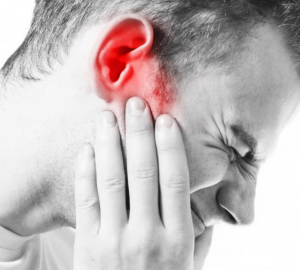The sound of the Heimlich maneuver being done on a small extraterrestrial, more often known as your cat, struggling with the unpleasantness of hacking up a hairball is all too familiar to most cat parents. Rehashed cat hair covered in digestive secretions forms hairballs, which are tubular in shape. Think about how your cat feels when one comes back up her esophagus!
You’ve heard it before: your cat trying to get rid of a hairball. The sounds of retching, gagging, and vomiting might keep you awake at night or ruin your lunch. You rush for the paper towels and cleaning sprays as your poor cat tries to get rid of the alien stuff.
Hairballs, also known as trichobezoars, form when cats groom themselves. Hair is swallowed and conveyed to the stomach by licking at the coat. Balls form, and the cat vomits up the mess when it becomes too unpleasant.
Many cat owners believe that hairballs are an unavoidable part of life, but you can prevent them with a simple home cat hairballs remedy. Before attempting the hairball home remedies for cats, consult your veterinarian, especially if your cat is elderly or has a chronic disease.
What are Hairballs? And Is That Normal?
Unless your cat is coughing up hairballs on a frequent basis, they are usually safe. The hair may have stiffened and clogged the intestinal tract, which can be fatal to your pet.
During the grooming procedure, your cat is likely to swallow hair. Hair is normally transported through the body and removed, but it can also get stuck in the intestinal tract. Your cat may then vomit up a hairball, often known as a trichobezoar.
You’re not alone if your cat has hairballs. Hairballs in cats are common, regardless of their hair length.
Cats do not normally vomit on a regular basis. If your cat’s vomiting becomes more frequent or persistent, or if he or she refuses to eat, they should see their normal veterinarian for a checkup.
Bacterial overgrowth, intestinal parasites, inflammatory bowel disease, or GI lymphoma are some of the other underlying disorders that can induce vomiting in cats.

What Causes Cat Hairballs?
Cats are diligent groomers who use their mouths to do their tasks. They prefer to bathe themselves rather than have their people bathe them.
The rough texture of our furry pets’ tongues will be familiar to cat parents who have received the odd affectionate tongue bath from their felines.
This is due to the fact that their tongues are covered in small barbs that are ideal for removing dirt and other debris from their coats. They’re also great for catching and swallowing extra fur and loose hair.
The majority of the time, this fur can go through the stomach and intestines without causing any problems. When a considerable amount of fur becomes caught in a cat’s stomach, it is regurgitated in the shape of a hairball, also known as a cat furball.
What are the other signs and symptoms of Hairballs in cats, and what can you do if your cat has them?

Cat Hairball Symptoms
Most cat owners are aware of the telltale Hairballs in cats symptoms. They frequently include:
- Gagging
- Retching
- Hacking
These noises usually indicate that your cat is ready to pass a hairball. Other, more subtle indicators that your cat is having trouble with a hairball and may require medical treatment are included below.
If your cat exhibits any of the following symptoms, it’s time to skip the home remedies and make an appointment with your veterinarian:
- Continuous screaming or vomiting does not result in the formation of a hairball.
- Indigestion problems, such as diarrhea or constipation, or a loss of appetite.
- Lack of energy.
- A bloated or hard stomach.
If your cat gets hairballs but has no issue getting rid of them, there are several things you can do with home remedies for hairballs in cats to reduce their frequency.
Home Remedies for Hairballs In Cat
Hairballs, however, are rarely a symptom of a major problem. If you’ve ever observed a cat cough one up, you’ll know that it’s not a nice experience for them. We don’t especially enjoy cleaning up, either! You’ll be relieved to learn that there are a few simple and natural home remedies for cat cures.
Administering a Hairball Preventative
A hairball preventive may be recommended by your veterinarian to keep hairballs at bay. The products function as lubricants, allowing your cat to pass the hairball via the digestive system. Laxatone is an example of a substance that can be applied and licked off its paws.
Change of Diet
A change in diet may support your cat in digesting and eliminating the hair that has been swallowed. A fiber-rich diet may be recommended by your veterinarian.
Fiber is known to keep the intestinal tract healthy, which is exactly what your cat needs to pass the swallowed hair through its system. You can also ask your veterinarian about providing your cat with a hairball-prevention diet and treats. Changing diet can be one of the effective home remedies for cat hairballs.
Also Read: Home Remedies For Worms In Cats
Olive Oil
Olive oil can be used as one of the home remedies for cat hairballs. Adding olive oil to your cat’s food can improve digestion and hair removal. If your cat is having trouble with hairballs, try mixing a little olive oil into his or her food. However, never force oil into your mouth because it could end up in your lungs. Allow it to be licked by your cat.
A teaspoon of olive oil once or twice a week should suffice. Oil in the digestive system will aid indigestion and help your cat eliminate hair from its stools.
Hairball-related stomach discomfort should be reduced as a result of this. Mineral oil, corn oil, and saffron oil are some of the other oils that can aid.

Brush Your Cat
Of course, preventing hairballs in cats in the first place is one of the most efficient strategies to deal with them. Brushing regularly removes a large portion of the extra fur that would otherwise be swallowed and regurgitated. It also provides a unique opportunity for us to spend quality time with our cats.
While some cats enjoy having their fur brushed, others may not be so thrilled. Gradually introducing grooming time may help them adjust with as little discomfort (for the cat or the cat parent!) as feasible. Starting with a few strokes with a grooming glove and special goodies may make the changeover go more smoothly.

Use Baby Wipes
Baby wipes are one of the easiest and cheapest home remedies for hairballs in cats. After brushing your cat, use a fragrance-free, hypoallergenic baby wipe to clean them down. Alternatively, a damp paper towel can be used. A damp cloth like this can assist remove any leftover loose hairs, reducing the amount of fur that ends up in your cat’s stomach, and decreasing the danger of hairballs.
Increase Water Intake
If your cat eats dry food, their diet is most likely insufficient in water to meet their hydration requirements. As a result, their digestive system may not function as efficiently as it should.
Provide a clean, fresh water supply for your cat. Many cats prefer rushing water over still water, and tap water may be offensive to them.
To encourage your cat to drink more, consider purchasing a water fountain. Canned food may also provide sufficient water to keep the digestive tract flowing smoothly, decreasing the chance of hairballs.

Read More: Home Remedies For Cat Mats – Quick & Easy Solutions
Petroleum Jelly
Petroleum jelly can be used as one of the home remedies for cat hairballs. Applying a small amount of petroleum jelly to a paw will urge your cat to solve his or her own difficulties. The jelly will almost certainly be licked away by your cat, lubricating the digestive system.
This will make excrement elimination more comfortable for the cat, as well as remove hair from the digestive tract. Do this once or twice a week.
Adding Canned Pumpkins to Your Cat’s Food Is A Good Idea
Halloween isn’t the only time to use pumpkins. They’re also good for preventing hairballs. Pumpkin is high in fiber, but it also possesses bending properties that can help you pass hairballs and excrement.
If you’re going to add pumpkin to your cat’s diet, make sure it’s a pure pumpkin. Because this is heavy with sugar, you can’t use the type of filling you’d use in a pumpkin pie.
It’s also a good idea to warm up the pumpkin before adding it to your cat’s food if they have a sensitive stomach.
Drizzle Some Butter Or Olive Oil Over Your Cat’s Food To Make It More Appealing
Both home remedies for cat hairballs have the same effect: they assist the hairball pass normally by easing digestion. Once a week, adding a spoonful of olive oil or melted butter to your cat’s diet should be enough to help with digestion. However, forcing olive oil into your cat’s mouth is never a good idea.
You must ensure that your cat naturally licks the oil. You risk sending it into your cat’s lungs if you don’t.
This method will not only aid your cat in passing the hairball, but it will also alleviate any stomach discomfort they may be feeling as a result of the hairball. Other oils, such as saffron oil, corn oil, and mineral oil, can be used.
When To See a Vet?
Hairballs are harmless in and of themselves. Take your cat to the vet right away if they’re walking around the house and retching continuously with no indication of a hairball (and especially if they’ve lost energy and refuse to eat).
It could indicate that the hairball has passed through their stomach and into their intestine. This is a dangerous condition that should be treated by a veterinarian as soon as possible.
If your cat experiences any of the following cat hairball symptoms, you should take them to the veterinarian:
- Gagging, vomiting, and retching for a long period of time without producing a hairball
- A loss of appetite
- Lethargy
- Constipation or diarrhea in cats
- Excessive grass nibbling
- A tender or bloated stomach

Faq’s
Add a teaspoon of olive oil or melted butter to your cat’s diet once a week. Every now and again, give your cat a tiny amount of canned tuna or sardines. Dip your cat’s paw in petroleum jelly for another good approach.
1 teaspoon of olive oil over your cat’s food once a week is the generally acknowledged amount for hairball prevention. Oil in your cat’s food can assist to lubricate the digestive tract, making it easier for hair to pass through naturally.
Once a week, add a spoonful of olive oil or melted butter to your cat’s food. Give your cat a small quantity of canned tuna or sardines every now and then.
Hairballs are best avoided by eating a high-fiber diet, and several cat foods are intended to help. A tablespoon of canned pumpkin mixed into a cat’s chow once or twice a week will simply add more fiber to their diet while also providing a nice treat.
They do, in fact. Wet food helps hair pass through the intestinal system since it’s easier to digest, which means it moves through the body rapidly, preventing hair from forming a ball. As a result, cats on a solely wet food diet will have fewer hairballs.
A little cat should also be given three tablespoons of olive oil once a week. A medium-sized cat can consume up to half a tablespoon of cat food per day. A huge cat may consume up to half a teaspoon of food per day.
Gastrointestinal blockages necessitate emergency surgical intervention, so if your cat exhibits any of the following signs, contact your veterinarian right away:
– Retching, retching, retching, retching, ret
– lethargy
– I’m not hungry
– Constipation
– Diarrhea









